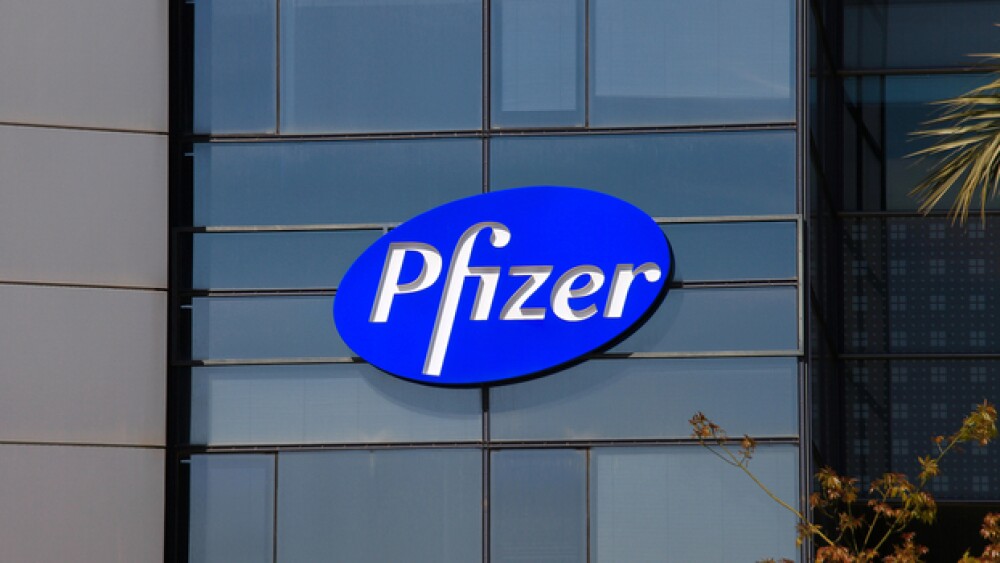After conducting a routine research-and-development review, Pfizer is easing away from preclinical biosimilar development. The bottom line is the company is ending five preclinical programs in its biosimilar area and cutting 150 positions.
StockStudio / Shutterstock.com
After conducting a routine research-and-development review, Pfizer is easing away from preclinical biosimilar development toward more cutting-edge drugs. The bottom line is the company is ending five preclinical programs in its biosimilar area and cutting 150 positions in Lake Forest, Illinois and in Chennai, India.
It was in mid-October 2018, when Pfizer, citing structural simplification, announced plans to cut its global staffing by approximately two percent. It expected to do so mostly via voluntary layoffs and early retirement through the end of 2018 and into early 2019.
At that time, Sally Beatty, Pfizer spokeswoman, told CNBC, “As we prepare for growth, we are creating a simpler more efficient structure which will affect some managerial roles and responsibilities. We are offering enhancements to certain benefits to lessen this effect.”
That announcement followed the release of its succession plan for its chief executive officer, Ian Read, who stepped down on January 1, 2019. Albert Bourla, formerly Pfizer’s chief operating officer, took over the top spot.
In addition, mid-2018, Pfizer announced it was reorganizing into three units, splitting its consumer healthcare unit that it had previously been trying to sell. The units are: Innovative Medicines, which will include biosimilars and a new hospital business unit for anti-infectives and sterile injectables; Established Medicines, which will cover off-patent branded and generic drugs; and Consumer Healthcare. The changes will happen sometime this year.
At the time, Pfizer told employees, “To achieve our full potential we will need to create a simpler and more efficient organization. As we simplify the organization to avoid duplication, create single points of accountability and reduce the number of layers within teams, there will be an impact to some managerial roles and responsibilities across the organization.”
Pfizer does not plan on exiting the biosimilar market with the cuts to the program, which will be implemented by July. However, it appears to be trimming some of its earlier-stage biosimilar programs. Reportedly, staff at the Lake Forest site were informed of the decision in November. The job cuts are expected to occur in three waves, with the final wave focused on wrapping up the company’s biologics license application (BLA) for a biosimilar (PF-06881894) to Amgen’s Neulasta (pegfilgrastim), which is used to treat patients with low white blood cell counts caused by chemotherapy.
The R&D units affected by the job cuts are part of the Hospira acquisition three years ago.
Pfizer appears to be taking a slightly different approach to some areas of drug development, including neuroscience. A year ago, on Jan. 6, 2018, Pfizer announced it was abandoning R&D into new neuroscience development, including Alzheimer’s and Parkinson’s disease. It said it was cutting 300 jobs, primarily in Cambridge and Andover, Massachusetts, and in Groton, Connecticut. It said it would continue to work on tanezumab, a late-stage drug for pain it was developing with Eli Lilly and Co., as well as Lyrica, for fibromyalgia. It also intended to continue working on developing neurological drugs for rare diseases.
However, in October, Pfizer partnered with Bain Capital to launch a neuroscience spinoff called Cerevel Therapeutics. This is part of the company’s strategy to maintain a presence in neuroscience, company executives said at the JP Morgan Healthcare Conference last week.
Cerevel Therapeutics will focus on Parkinson’s, epilepsy and other central nervous system disorders. mSA writes, “The Cerevel launch is just one piece of a larger strategy that Pfizer aims to use to keep its eye on neuroscience—if not from the front row, then at least from the sidelines. Although the pharmaceutical behemoth will no longer pursue neuroscience research and development efforts internally, it will fund startups doing everything from screening for better drug targets to running advanced clinical trials for superior drugs.”
As part of that effort, Pfizer Ventures, the venture-capital arm of Pfizer, added $150 million to invest in startup neuroscience companies. Overall, Pfizer Ventures has more than $1 billion it manages.
Barbara Dalton, vice president of Pfizer’s worldwide business development team and a senior managing partner of Pfizer Ventures, told Business Insider at the JP Morgan conference, “We did not feel that [neuroscience] was an area we wanted to totally walk away from.”





